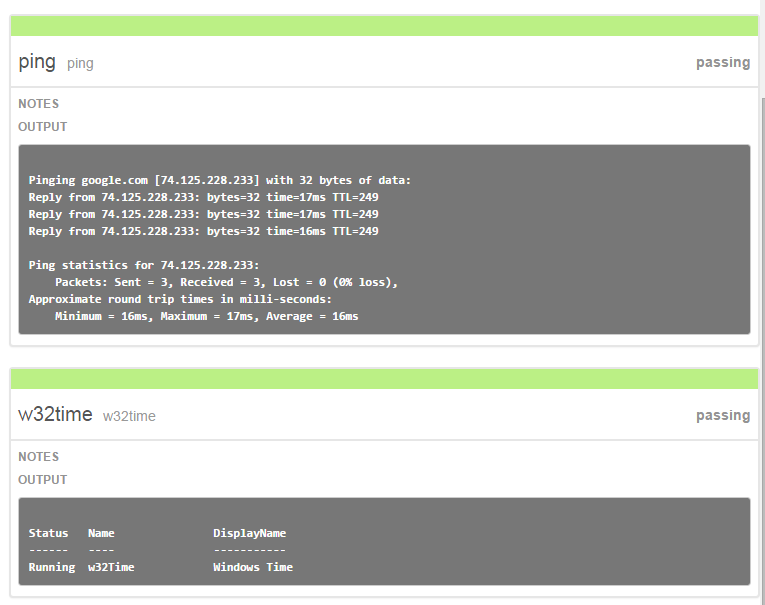Getting Started
I recently read this article, Consul for Cluster Health Monitoring, and was interested if I could use this to execute PowerShell based health checks.
Consul has a Win32 build so it seemed reasonable despite there being no Windows examples in the documentation.
Here’s the command I ran to start up a Consul server. Ideally, you’d want a few of these in each physical site and then a Consul agent on each node. You can read more about that on their documentation.
C:\Temp> consul agent -config-file="C:\Temp\consul\serverconf.json" -bootstrap-expect 1 -config-dir="C:\Temp\consul\conf"
serverconf.json
{
"datacenter": "dev",
"data_dir": "C:\\Temp\\consul\\data",
"log_level": "INFO",
"server": true,
"ui_dir": "C:\\Users\\chunt\\Downloads\\0.5.0_web_ui\\dist"
}
service.json
{"check":
{
"id": "W32Time",
"name": "w32time",
"script": "PowerShell -ExecutionPolicy Bypass -NoProfile -File c:\\Temp\\consul\\conf\\ServiceCheck.ps1",
"interval": "30s"
}
}
ServiceCheck.ps1
$Service = Get-Service w32Time
if ($Service.Status -ne 'Running')
{
$Service | Write-Output
exit 2
}
else
{
$Service | Write-Output
exit 0
}
The only important bit is that you return an exit code of 1 or greater (1 for warning, greater for failure). PowerShell usually exits with a status code of 0 even if your script throws a bunch of errors.
Consul UI
Here’s what the check looks like in the Web UI. Not only does it show a status, but includes the output form the last run. That allows you to provide some additional context in your checks. In this case, I just pass through the output of Get-Service.


Summary
Is this better than the monitoring you have? Probably not, unless you have no monitoring. In which case, yes and it’s free and simple to set up. The real value with this approach is it forms the foundation of a functional CMDB which you can build on for other purposes. Consul is a distributed system meant to store the current state of your infrastructure—what services are running on what systems and, in this case, are they actually running. If there’s interesting to you, go read some more about Consul.